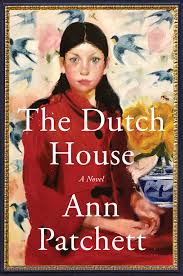Chapter 18
byChapter 18 begins with the narrator and his family setting out for a visit to the Philadelphia Museum of Art, drawn by an exhibition showcasing the works of Camille Pissarro. The city, with its familiar streets and historic charm, evokes memories of the past, transporting the narrator into a reflective state as he arrives by train. The focus quickly shifts to the relationship between his sister, Maeve, and their mother, whose presence looms large despite years of estrangement. Maeve, who has long carried the weight of their shared past, has found herself drawn into a delicate, if unspoken, reconciliation with their mother, a woman whose absence defined much of their early lives. The recent cataract surgery their mother underwent symbolizes a transformation—not only in a literal sense but also as a metaphor for renewed clarity, a new way of seeing and understanding their history.
As the family moves through Philadelphia, memories bubble to the surface, particularly those tethered to the Dutch House, a grand structure that remains both a symbol of their childhood and a monument to their deepest wounds. Maeve, with her sharp recollections and keen sense of injustice, cannot help but revisit the past, especially the lingering presence of Andrea, their stepmother, whose actions shaped the trajectory of their lives. The Dutch House is more than just an architectural relic; it serves as an anchor, a repository of their collective memories, both cherished and painful. While Maeve remains tethered to the past, the narrator recognizes that his own emotions about the house and their childhood are more conflicted—less about anger and more about resignation.
The chapter takes an unexpected turn when Maeve and the narrator encounter Andrea, now a frail and diminished figure, suffering from significant cognitive decline. The formidable woman who once controlled their fate with an iron grip is now vulnerable, lost in the haze of her failing mind. This moment brings about a swirl of emotions—bitterness, pity, and a faint trace of understanding, though not necessarily forgiveness. Andrea’s decline serves as an ironic twist of fate, one that Maeve, despite her lingering resentment, cannot fully revel in. The woman who once expelled them from their childhood home is now in need of care, and the person who has chosen to provide it is none other than their mother—a decision that sends Maeve into an emotional tailspin.
Maeve struggles to comprehend their mother’s sense of duty, feeling as though the woman who once abandoned them has now chosen to extend compassion to the very person responsible for their suffering. The contradiction stings, reopening wounds Maeve has spent a lifetime trying to close. While their mother sees her actions as an act of mercy, a moral obligation that transcends past grievances, Maeve cannot help but feel betrayed once more. The narrator, positioned between these two formidable women, is left to navigate the space between Maeve’s justified anger and their mother’s unwavering commitment to righteousness. It is an internal battle between justice and grace, resentment and release, a conflict that underscores the complexities of love and forgiveness.
As the chapter comes to a close, the narrator is left pondering whether true closure is even possible or if the past is something one simply learns to carry with them. The Dutch House, ever looming in the background, remains an omnipresent force, a physical manifestation of both their pain and their history. Its grandeur and significance refuse to fade, mirroring the indelible impact of their childhood and the tangled relationships that continue to shape their lives. This chapter masterfully weaves themes of memory, family, and the struggle between resentment and reconciliation, highlighting the ways in which people grapple with the past, not just in grand moments of revelation, but in the quiet, lingering emotions that surface when least expected.


